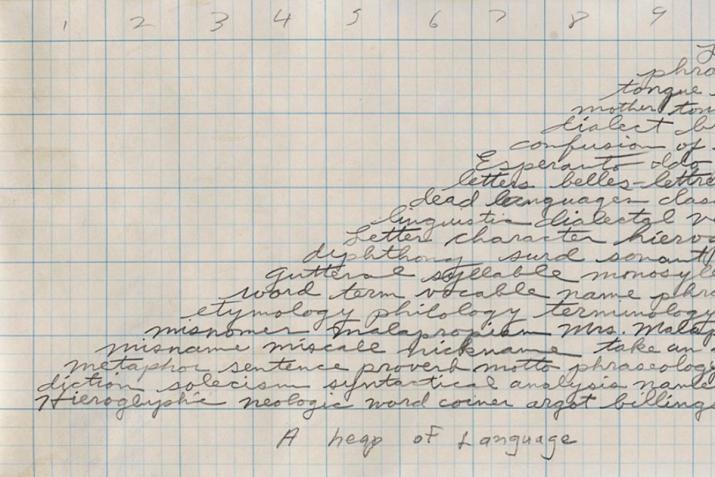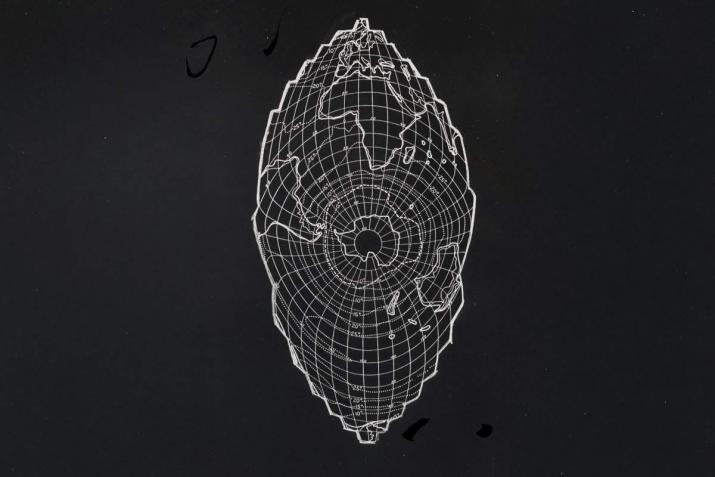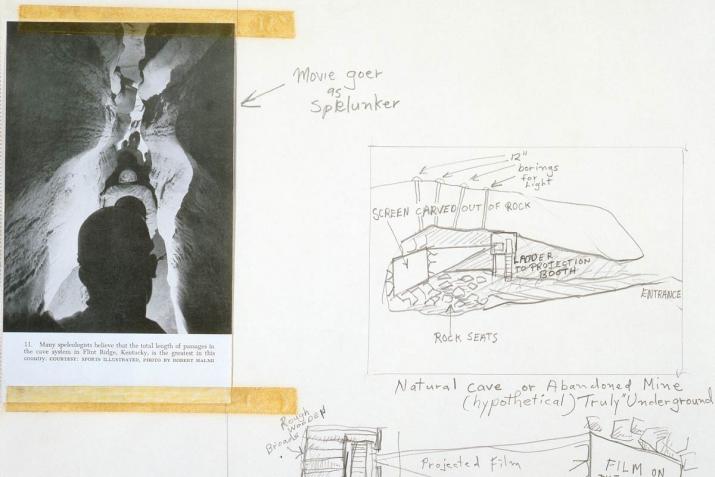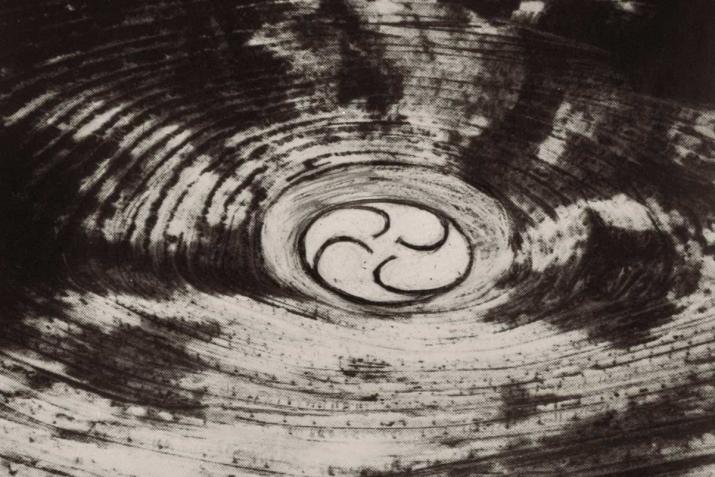
A heap of Language
Something between a drawing and a text—or, as Smithson referred to it, “Language to be Looked at and/or Things to be Read”—A heap of Language offers a series of linguistic terms confined by the mathematical parameters of a numbered graph. Its shape is something of a pyramid (a symbol of rigorous structural precision), yet it is constructed from the top down, defying the laws of gravity. This work could be considered a concrete poem. Cleverly evading definitive classification at every turn, A heap of Language embodies Smithson’s love of paradox.
Note: Smithon's use of lowercase "heap" is followed in the title of this work



